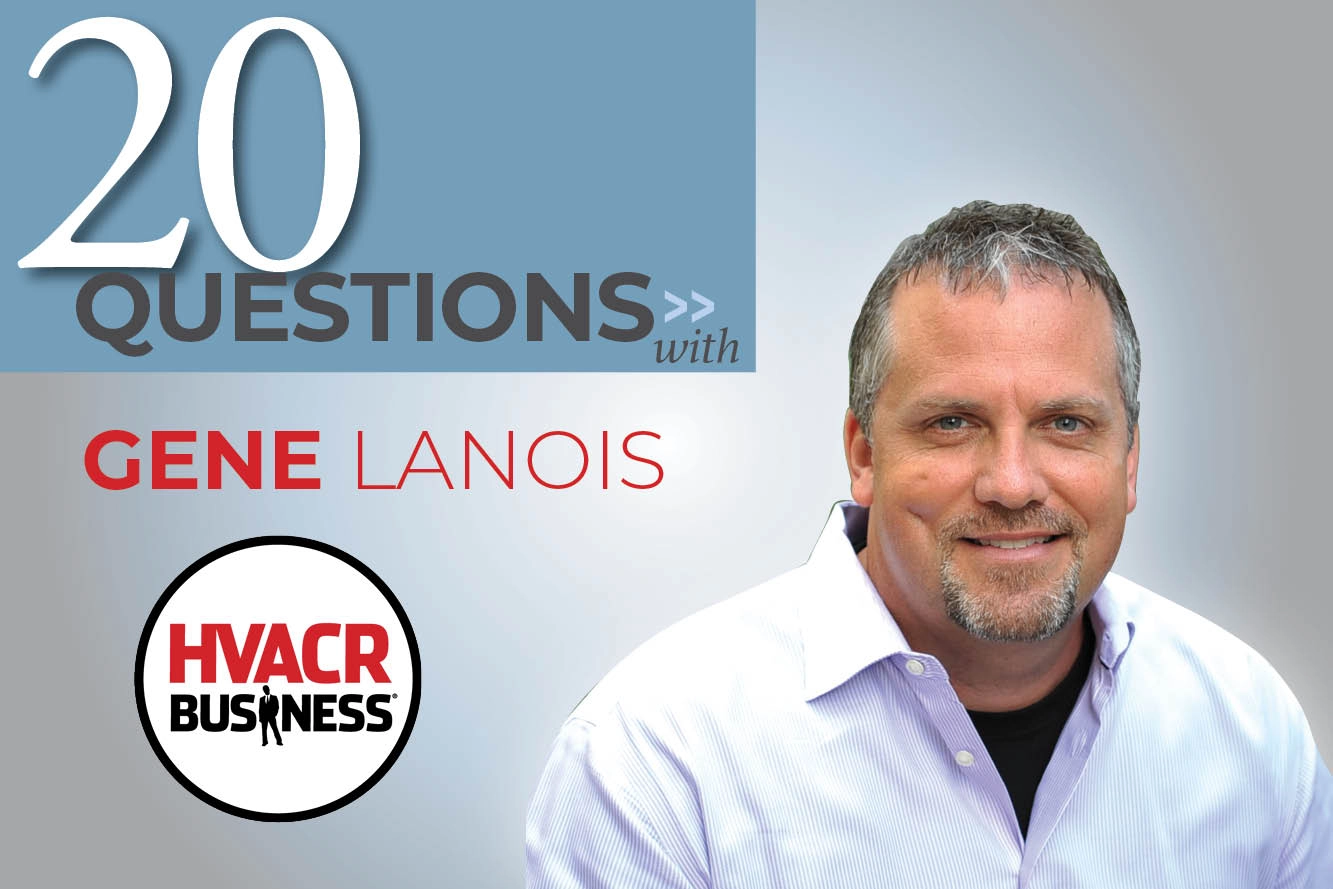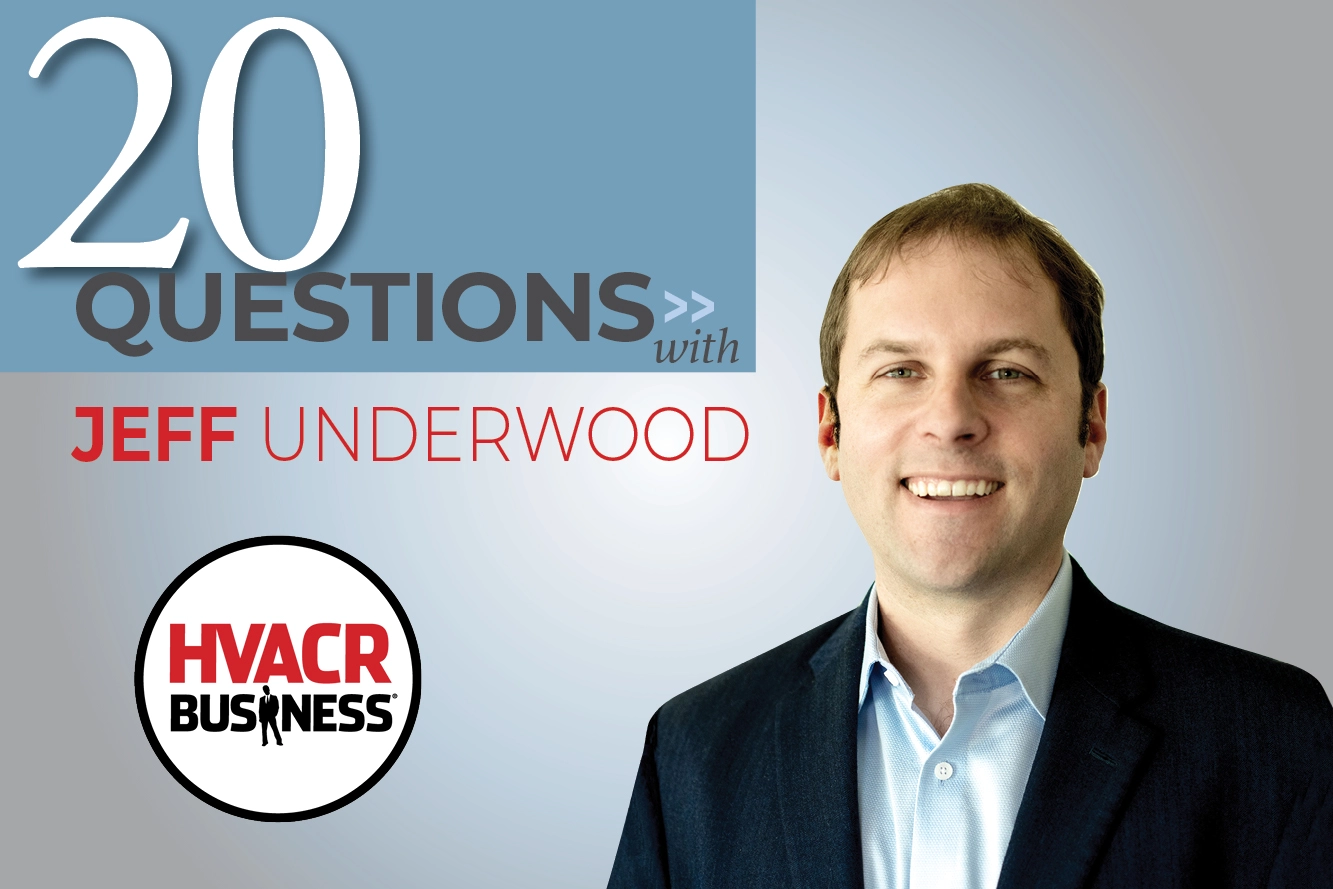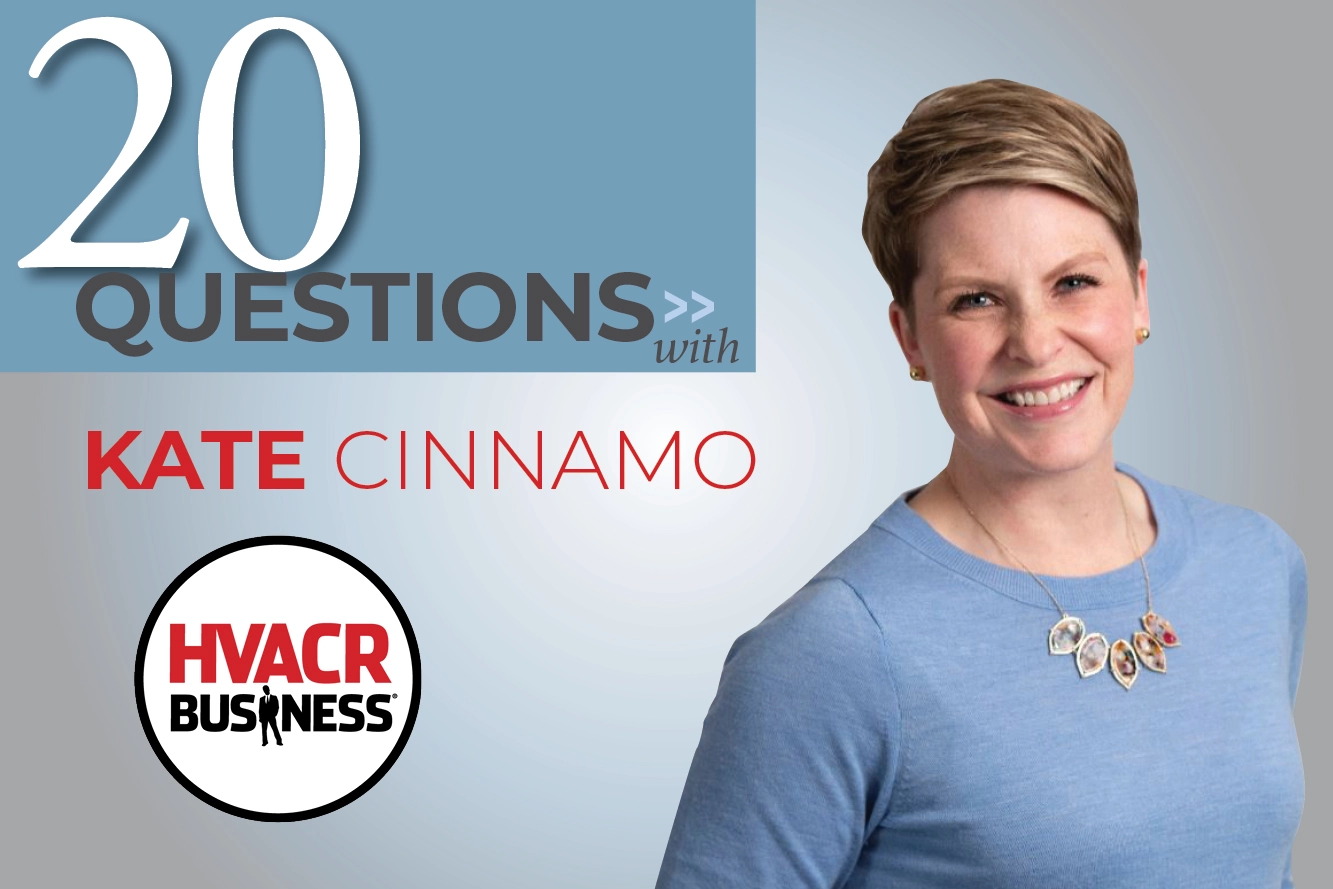Publisher Terry Tanker sat down with Gene LaNois, Director ,Google Nest Industry Partnerships to discuss family businesses, bucket lists, preparing for business every day and upcoming industry trends, challenges and opportunities.
1. What’s your favorite movie of all time?
I’m not a huge movie guy but I did like Wall Street and the Wolf of Wall Street.
2. What’s the best present that you’ve ever given to someone?
I would have to say it was an engagement ring.
3. What are the top three things on your bucket list.
1.) I’d love to own a cigarette boat and take it on a poker run. 2.) Drive a rally car race through the desert. 3.) Would be involving my family in the first two.
4. If you could hit the rewind button, what would you like another shot at?
I regret I did not join the armed service. That is one that I think I would’ve really liked to do, and I would have joined the Navy.
5. If you could have an unlimited supply of one thing, what would it be?
Great profitable ideas.
6. What are the three words that best describe you?
Determined, humble, competitive.
7. What would people be surprised to know about you?
I do not have a college degree. I was forced to get to work right away as a kid, but honestly owning my own business was the best education I could have ever had, there is no substitute for the “on the job training” that you experience. Some of that learning is very painful, so you learn quick.
8. Most business leaders have good mentors who was yours and what advice did they give you?
I have taken something that I thought was valuable from almost every leader I have ever worked for. I hope that I have been able to provide the same opportunity for those that have worked and do work for me today. I learned general “hard work” from both my parents, but after that I have gleaned something that I decided that I wanted to adopt from managers and co-workers throughout the years. How I operate, communicate and make decisions is really based on all of those experiences and adoptions.
9. What are the three things you do every day to prepare for business?
The first thing I do is I review my calendar. The second thing I do is scan LinkedIn because it connects me with people, companies, and industries that I like to follow, essentially my area of business. My feed will tell me a lot about what’s going on and it will give me pieces of information that I may not know about because it’s very intimate and focused on the people and areas of business that I care about. Third, I scan through my email subscriptions from industry publications (like HVACR Business). I look through all the headlines and decide if there is anything I should spend a few minutes on to make sure I am “in the know” before I meet with people throughout the day.
10. How did you get into the industry?
My dad was a contractor and I started helping him with duct cleaning. The business grew tremendously, and I decided to sell in the first round of consolidation in the late nineties. Then I went to work for a zone controls manufacturer which was then acquired by Honeywell and held a number of roles with them over the years. I traveled a great deal and because I had a young family I wanted to be home more and I got into the wholesale distribution business with a great family business Victor Distributing. And that led me to an opportunity with the Watsco Carrier distribution joint venture where I was director of their parts and supplies business.
11. What led you to Google Nest?
At Watsco we were the exclusive pro wholesaler when Nest launched in 2011. In 2013 when they were still in start-up mode and I was offered a position with them.
12. What tools do you use to stay organized?
As simple as it is, literally my Google calendar. If it’s not on my calendar, it’s not real and it’s not going to happen.
13. What aspect of running the business do you enjoy the most?
Problem solving! Without a doubt. Every business is faced with different problems and most businesses have a lot of the right ingredients, but they don’t necessarily have a great recipe. I think looking across the business, seeing what you have and figuring out how to make a great recipe with those ingredients is probably the most interesting piece.
14. What do you do to keep your business acumen sharp?
I like reading or watching a great documentary. It could be on sports or a business icon, something that helps me stay sharp and focused, literally learning how others are applying their craft. I usually find some great take aways and inspiration. By the way it doesn’t mean you have to like them, you just need to respect and understand what and how they accomplished their success.
15. What fundamental business areas are you focused on right now?
If you look at the HVAC industry specifically, there is this inflection point where you have connected thermostats, but you don’t necessarily have connected equipment, and everything that works along with those systems is analog and not communicating. Automotive used to be this way. It’s going to require a change at the manufacturing level, and there’s a lot of software that has to be written to enable that change, but it’s really critical that it be done.
16. What do you view as your most important management responsibility?
Letting my team make mistakes ... once.
17. What’s the most significant challenge facing Google Nest this year?
It’s that increased availability of competitive technology. Nest has paved the way for a lot of other companies to see what they could do with technology, and that creates ideation for other people and other companies, and I think where there was more uniqueness of what Nest did at one time, that space is getting a lot more crowded. So yeah, I think the pressure is really around competitive pressures. There is still a lot of room for contractors to use connected thermostats more than they do today.
18. What ideas have you come up with to address that challenge?
The biggest focus for Google Nest is how do we utilize what we have, to help keep the homeowner connected to a contractor. We want to make sure that when a customer needs help with their system, the contractor that installed that thermostat or the contractor that put that system in with the thermostat was going to be the one who got the call. That to me is one of the bigger opportunities of the business.
19. What trends do you see in the market this year?
Efficiency changes will require more staging in a thermostat. Some manufacturers have decided that their minimum efficiency is going to be a two-stage compressor, and if that’s in a heat pump, things just got more complex. Multi-stage equipment, will require more complexity from the thermostat and will move from a four wire device to eight or more over the next five years.
20. What advice do you have for our audience contractor owners?
Get “ENTRENCHED.” As a business owner. I made sure that I tried to attend meaningful shows and read all my industry publications, I think being engaged is important. Follow the manufacturers, keep up with the brands you represent and stay connected with their people.






